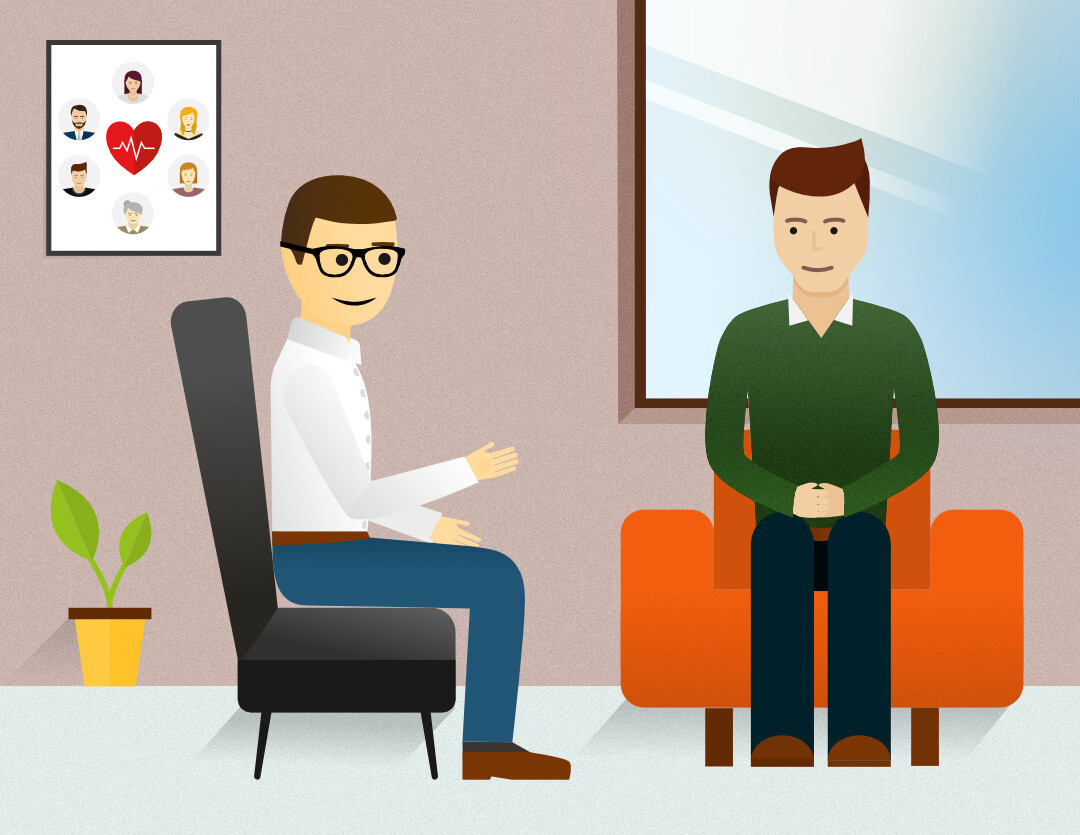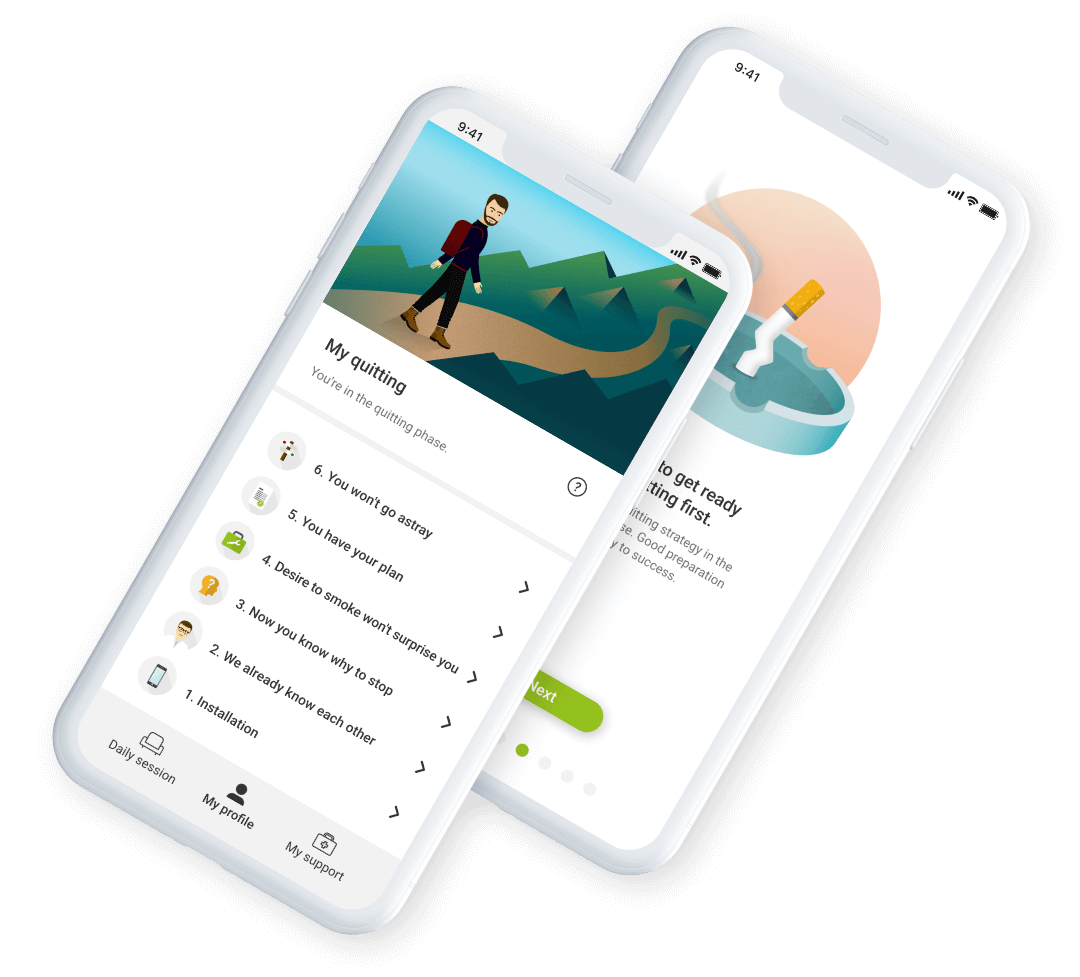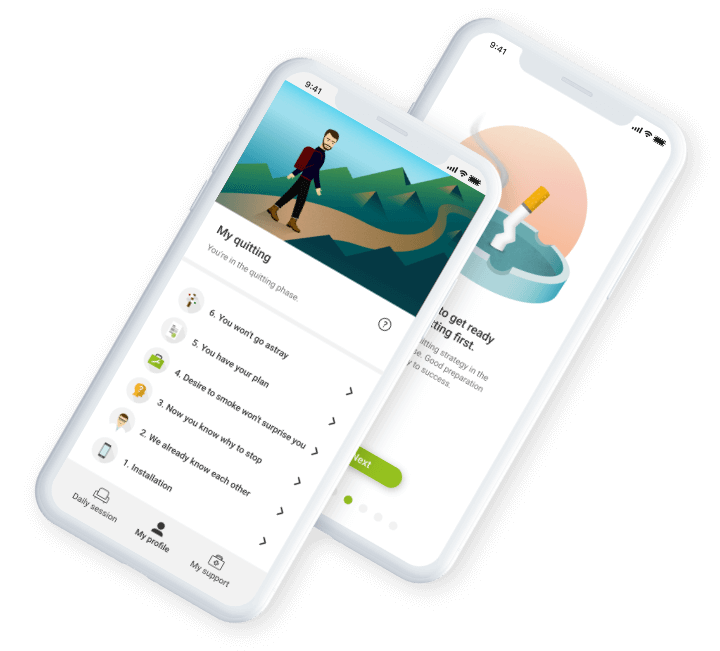Individual therapy is an essential part of quitting. The addictologists, who have been developing the Adiquit app were basing it on clinical studies and years of experience in working with patients. You won’t be exposed to any amateur pieces of advice, theories or even charlatanism. You’ll be guided by Adam, a virtual addictologist through the quitting process. Adam has adopted the expertise of his authors and therefore he is able to help as a real therapist.
It is alarming that 16 thousand people die every year due to active smoking and 2 to 3 thousand people due to passive smoking. These are enormous figures, which made the authors of Adiquit to develop an app that makes professional help much more accessible.
“There isn’t any universal addiction therapy. Each step must reflect the needs and current condition of the client. I took all my experience in psycho-therapeutic approach and from academy where I’ve been focusing on education in the field of addiction prevention and therapy and I’ve embedded them into Adam. I believe that thanks to the app everybody can have in their phone, the quitting process will become more accessible for increasing number of people as compared with the traditional outpatient treatment,” says psychologist and addictologist Roman Gabrhelík.
A person who is trying to quit on their own may lose perspective with the lack of professional guidance. They tend to marginalize many things, deny negative consequences of their behavior, they don’t know what they’re doing wrong and how to do it properly. However, this is absolutely normal and natural, this is how our brain reacts when we cut it off something it is addicted to.
“Many smokers make the mistake of quitting overnight in the moment they are not quite ready for it. Therefore our therapy is divided into the preparatory and quitting phase. It is OK to make an all-of-a-sudden-decision and it’s a very important step. It is even more important to be ready for the first day without cigarettes though,” says addictologist Adam Kulhánek.
You won’t be surprised by typical smoking situations when you’re prepared and you’ll know what to do when the withdrawal symptoms occur. You’ll be aware of the fact why some quitting smokers suffer form weight gain and how to deal with weight fluctuation, you’ll get everyday support, especially in the moment your will gets weakened and you’ll be dealing with high-risk situations and triggers.
“Virtual Adam, as the representative of our team, will ask you questions as whether you felt like smoking during the day, whether you managed to overcome it and how you were feeling. The everyday conversation substitutes the therapist – patient cooperation. The used methods are based on the real therapist practice and the app motivates the smokers to not light a cigarette. The users are getting notifications,” adds docent Daniel Novák, the third of the authors of the project.
Nicotine patches, gums and other products are an excellent aid for quitting. However, they solve only physical addiction. When you associate cigarettes with an everyday ritual of yours (a cup of coffee in the morning, smoking on the way to work, after lunch, with a glass of wine in the evening), it is important to focus on such mental triggers. Adiquit, as an efficient therapeutic method, can identify a smoker according to the level of their addiction and motivation and provide them with support during two months which are essential and also most difficult in the process of quitting.
People behind the app
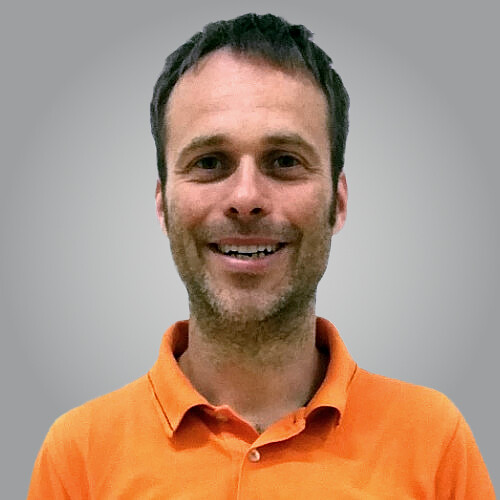
Roman Gabrhelík
A psychologist and an addictologist, his main focus is research and education in the field of prevention and addiction treatment.
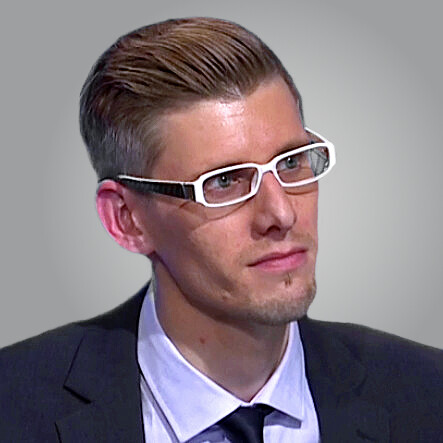
Adam Kulhánek
Addictologist, a vicepresident of Czech Coalition Against Tobacco and a member of the directorship of National Line for Smoking Cessation.
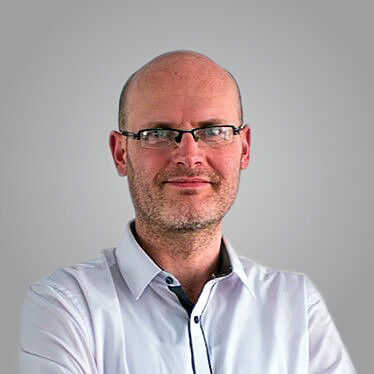
Daniel Novák
Docent with over 20 years of experience in the field of medicine technology and data analysis.

